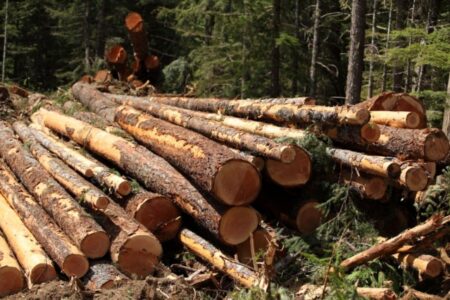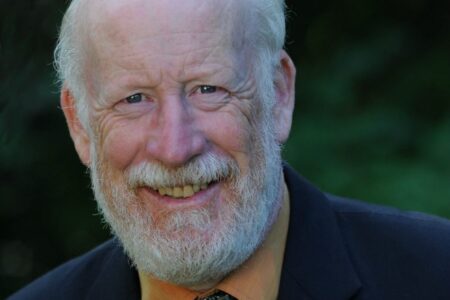Rossland, Castlegar, Selkirk reps on new forestry council
The Province has convened a new advisory council in support of forestry workers and communities.
“As someone who has worked in forestry and lives in a forestry community, I know personally how vital the sector is for our province,” said Katrine Conroy, Minister of Forests. “It is a foundation of the B.C. economy, providing good, well-paying jobs for over 55,000 people. As the major employer in many communities, it is the lifeblood of rural economies. Our vision is to build stronger, more resilient forestry communities and create new economic opportunities through innovative, value-added manufacturing. The council will help ensure we get this right.
“Congratulations to Brian Fry of Rossland, Dr. Sarah Breen of Selkirk College and to Kelly Johnson from Castlegar, who have been appointed to the Forestry Worker Supports and Community Resiliency Council,” Conroy said in her newsletter.
“This new council will advise the Province on improving and developing programs that are forward thinking initiatives to support forestry workers and rural economies. The council will help make sure that programs are targeted, effective, and responsive to the needs of workers, their families, and their communities.
“The new council includes 18 diverse members from across BC, and from many different sectors and communities, including Indigenous knowledge-keepers, forest industry experts, labour representatives, academics, local government representatives, and more. Breen is the regional innovation chair in Rural Economic Development at Selkirk College and adjunct professor in the School of Environment and Sustainability at the University of Saskatchewan. Kelly brings a wealth of experience and more than three decades of work with Mercer Pulp Mill. He is the president of the Confederation of Canadian Unions and the president of the Public and Private Workers of Canada. Brian is a strategic shareholder and technology evangelist with Iris Energy. He has also co-founded multiple organizations including the Columbia Lake Technology Centre, Granite Mountain Ventures, and i4C Innovation, giving him valuable skills that will be an asset to the Council.”
The Forestry Worker Supports and Community Resiliency Council will advise the Province on improvements to existing programs and the development of new, forward-looking initiatives aimed at supporting forestry workers and the economic resiliency of rural communities. The council will assist government in ensuring programs are targeted, effective and responsive to community needs and priorities.
Chaired by Doug Routley, Parliamentary Secretary for Forests, the council includes 18 members from broad sectors of B.C., including local government, Indigenous communities, forest industry and labour representatives, academics, and non-governmental organizations.
“I am thrilled to be leading a diverse group of council members from across the province that bring a range of skills, expertise and backgrounds to the table,” Routley said. “We need to move past the boom-and-bust cycles of the past that left workers and communities behind. Now is the time for us to work together to build a more sustainable, diverse and innovative forest sector.”
The B.C. forest sector is facing a declining mid-term supply of timber. Set by the independent chief forester, reductions in the annual allowable cut are primarily the result of the end of the beetle kill harvest and the impact of wildfires on the land base. Government’s vision includes shifting the sector from a focus on high volume to high-value production, with more innovative wood products manufactured locally and more jobs created for every tree harvested.
“People in rural communities have built the B.C. we know and love today in large part through their work in our forests,” said Roly Russell, Parliamentary Secretary for Rural and Regional Development. “As global economies and demands change, we know that we need to be better prepared across the province to navigate this shift. As a government, we’re working with rural communities to develop pathways to truly resilient economies, mitigating the impacts of sector downturns and helping people thrive in the communities they call home. This council will help ensure that we’re doing the best job we can of supporting rural communities through that transition.”
The Old Growth Strategic Review also recommended that the Province support forestry workers and communities as they adapt to changes resulting from the shift to new approach for managing B.C.’s old-growth forests. Budget 2022 included $185 million over three years to provide co-ordinated and comprehensive supports for forestry workers, industry, communities and First Nations who may be affected by new restrictions on old growth logging. This funding is helping expand and enhance existing programs:
-
Forest Employment Program – creating short-term employment for forestry contractors and their employees
-
Skills Training for Job Pathways – connecting workers and communities with skills training and educational opportunities
-
Rural Business and Community Recovery Initiative – funding to hire advisers to support rural businesses and communities with strategic decision-making
-
Community Transition Rapid Response Team – delivering on-the-ground economic development and community support services
-
Bridging to Retirement – providing as much as $75,000 to eligible forestry workers and contractors 55 or older to transition to retirement, helping to open up jobs for younger workers
New programs are also being developed focused on long-term economic development opportunities, including:
-
Industry Innovation Program
-
Rural Economic Diversification and Infrastructure Program
Learn More:
To learn more about the Forestry Worker Supports and Community Resiliency Council and its members, visit: https://www2.gov.bc.ca/gov/content?id=2CE7CC63CF6444B98991D5D3984ACE27[EAG1]
Learn more about Forestry Workers and Community Supports: https://forestryworkersupport.gov.bc.ca/
Learn about B.C.’s vision for forestry: https://www2.gov.bc.ca/gov/content/industry/forestry/our-forests-our-future



























Comments